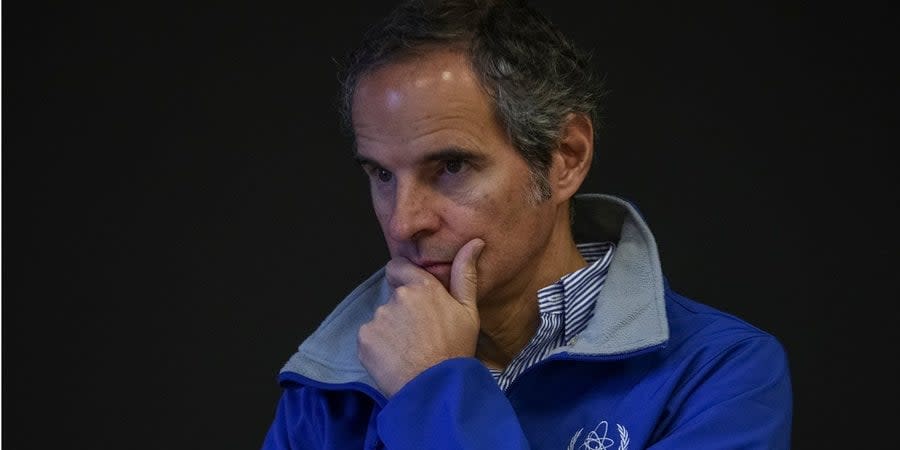IAEA chief skeptical Russia will share nuclear technology with North Korea in light of treaty obligations

- Oops!Something went wrong.Please try again later.
Rafael Grossi, Director General of the International Atomic Energy Agency (IAEA), has said he does not believe that Russia, a signatory to the Nuclear Non-Proliferation Treaty, will transfer nuclear know-how to fellow pariah state North Korea.
Grossi was speaking in an interview with South Korea’s Yonhap news agency on Sept. 15.
"I cannot conceive that countries would engage in trade or in exchanges (of nuclear weapons technology) with a country that has such a problematic relation with the non-proliferation regime like the DPRK (North Korea)," Grossi said.
He also said that in its relations with North Korea, Russia was aware of its obligations as a permanent member of the UN Security Council.
"I pretty much hope that this will continue to be the case," the IAEA chief added.
Grossi said that Moscow can "help" Pyongyang cooperate with the IAEA and "create confidence-building avenues" that have been severed with other countries.
At the same time, according to the director general, the IAEA sees "very concerning elements" in the activities at North Korea's nuclear test site in Punggye-ri, which remains prepared to conduct nuclear tests.
Read also: What weapons can North Korea send to help Russia against Ukraine – interview
"What we have is a program that is completely out of any supervisory control, any interaction with any independent monitoring authority or expertise in nuclear safety," Grossi said, adding that the IAEA is following the developments with "enormous interest."
"We’re available, we’re engaged and we want, of course, for North Korea to engage with us," Grossi said.
Earlier, UK newspaper the Financial Times wrote that North Korean dictator Kim Jong Un is ready to conclude a deal with Russian dictator Vladimir Putin, under which North Korea will provide Russia with weapons and ammunition to continue its full-scale war against Ukraine, in exchange for which Pyongyang may receive grain, oil, military technology or foreign currency.
It is also possible that Russia could transfer sensitive military technologies to the DPRK that could increase threats to its neighbors, particularly South Korea and Japan.
The administration of U.S. President Joe Biden has stated that the United States is "concerned" about the possible consequences of North Korea and Russia's cooperation in the field of nuclear missile technology.
Kim Jong Un's visit to Russia – What is known
Kim arrived in Russia on the morning of Sept. 12. He met with Putin, visited the Vostochny Cosmodrome in the Far East, and called the war against Ukraine a "sacred struggle," wishing the Kremlin dictator "victory."
Read also: Russia turning to North Korea a sign of weakness — Ukrainian intel
Washington has already warned that if the arms transfer does take place, Russia and North Korea will face new sanctions. At the same time, Kyrylo Budanov, the head of Ukraine’s Defense Intelligence, is certain that Russia has been receiving 122mm and 152 mm shells and Grad missiles from North Korea for a month-and-a-half.
At the end of July, Russian Defense Minister Sergei Shoigu traveled to North Korea amid a dispute with Russia’s Wagner mercenary company over an alleged shortage of ammunition. Later, in January, NATO Secretary General Jens Stoltenberg confirmed that the DPRK had transferred missiles and shells to Russian forces.
Early on Sept. 15, Kim arrived in the city of Komsomolsk-on-Amur in Russia to visit a fighter jet manufacturing plant there.
The Kremlin said that no military agreements were signed during the visit of the DPRK leader to Russia.
We’re bringing the voice of Ukraine to the world. Support us with a one-time donation, or become a Patron!
Read the original article on The New Voice of Ukraine

